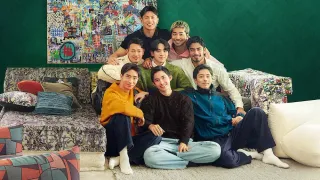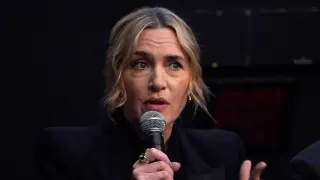August 12, 2015
Downtown Las Vegas Performers Concerned with Bid to Rein Them In
Bobby McGuire READ TIME: 3 MIN.
LAS VEGAS -- On the Fremont Street pedestrian mall, Michael Troy Moore can be found wearing nothing but a G-string and a stuffed rooster on his lap while he plays heavy metal music.
To him, that's good-natured comedy.
Inside the confines of Las Vegas City Hall on Tuesday, though, Moore dressed far more conservatively to air his grievances with a proposed ordinance aimed at creating order in the chaotic confines of the downtown Las Vegas mall that officials say are driving tourists and families away.
"Talent is not the threshold for us to be there," he told the city's attorney. Rather, the Constitution allowing for free expression is the threshold, he said.
Moore and a small crowd of other street musicians, magicians and impersonators and others took up the constitutional issue when offering varying concerns about a proposal to limit performances to 38 zones measuring six-feet in diameter during peak hours between 3 p.m. to 2 a.m.
Most agreed on one thing.
"It's chaos, basically, right now," said Jay Gelbman who goes by Stogee Blues when he's impersonating a Blues Brother. He suggested different rules and performance boundaries could help.
City Attorney Brad Jerbic, who fielded performers' comments on Tuesday, laid out the proposal inspired by Santa Monica, California's rules for its outdoor promenade, a system criticized by a few of the Las Vegas performers.
"The environment downtown is declining. It's a fact of life," he said.
Jerbic said he didn't want a desire for perfection in the law to get in the way of passing one.
"We are here to achieve a good thing," he said. "You'll be a lot more successful if this works."
The crowd was evenly divided between supporting the zones and having a registration system to identify performers and not having either.
Some said the spaces the city had drawn up were too small to accommodate performances. Zenon Obuchowsky, or rocker Paul Stanley by night, said there wouldn't be enough room for his KISS band of impersonators in a six-foot circle.
Others said the zones might force them next to scantily clad performers or aggressive panhandlers they would otherwise avoid by moving somewhere else.
Balloon-animal makers Heather Baress and Jared Carle said the rules could upset a natural occurring balance: the near-naked people stay over there and they make balloons elsewhere. "We realize we're bad for each other's business," Carle said.
But if forced to sign up for reserved zones, the two fear a lasciviously dressed performer could be standing in the wings waiting for their turn in the spot, potentially driving away families looking for balloon-animals for their kids.
Still, for others, the spots are fine, it's the rotation - every performer would be required to move to another spot every two hours - that troubles them.
Gregory Pointdexter, a Rick James impersonator who goes by the name GPEntertainer, said economically, performers need to know they'll have a spot when they need it and the proposal only allows 38 spaces at a time, 27 when there's a sanctioned Fremont Street stage performance.
"I have to be out there six days a week just to cover my head," he said.
The ACLU of Nevada, which has worked with the city to craft the ordinance, said it's not perfect and still needs to be tweaked. But the organization said restricting performances to the specified zones will actually be more inclusive than the current rules that just tell performers where they can't be.
The city is expected to consider the proposal on Sept. 2.






